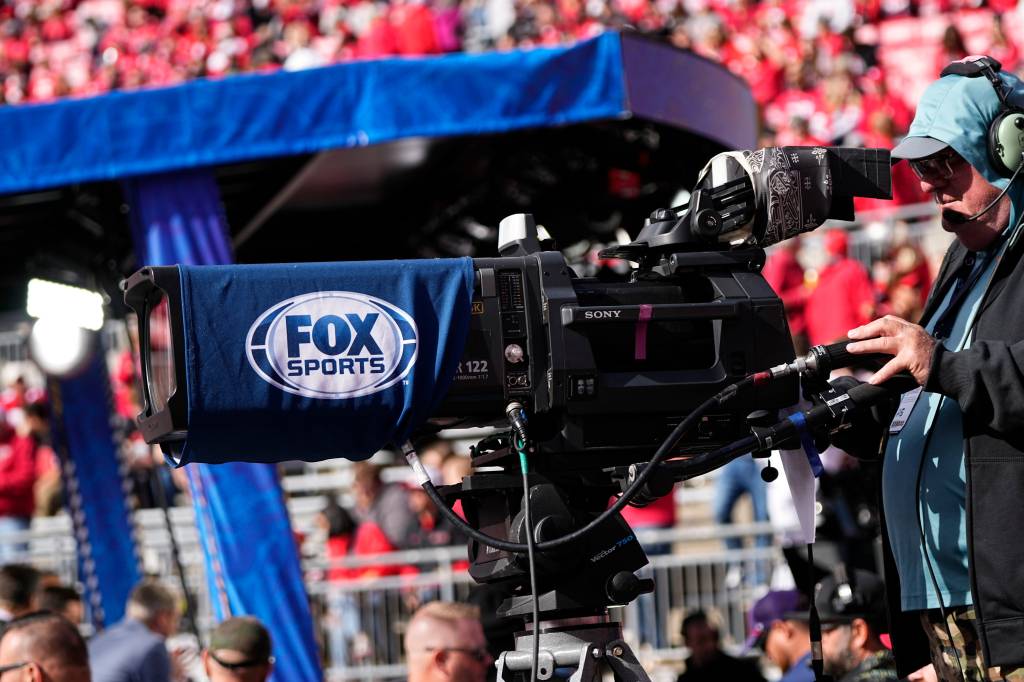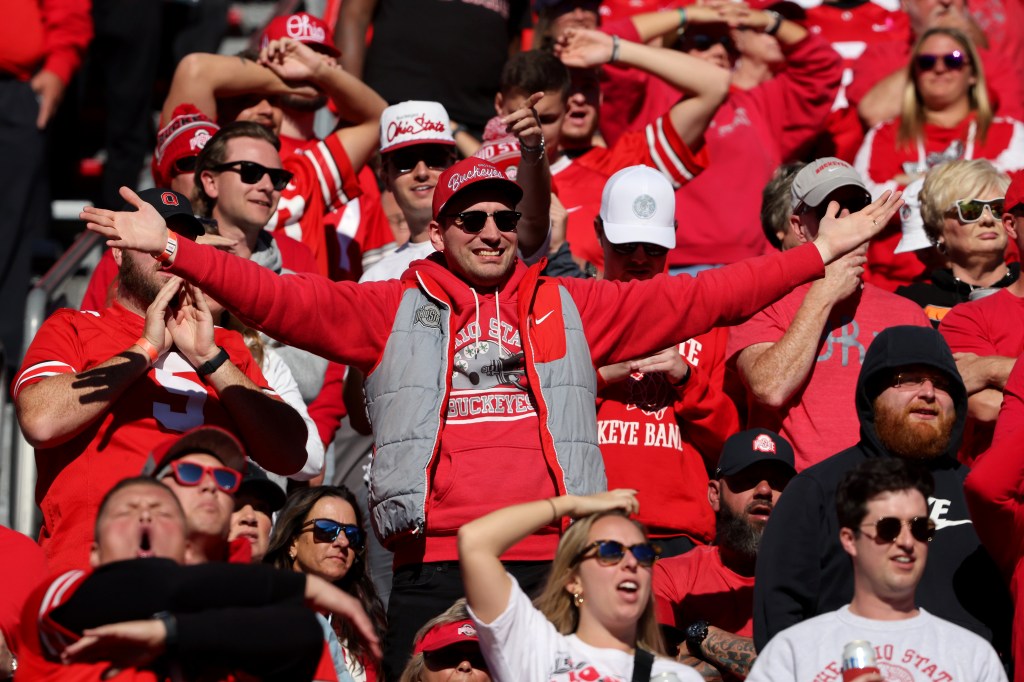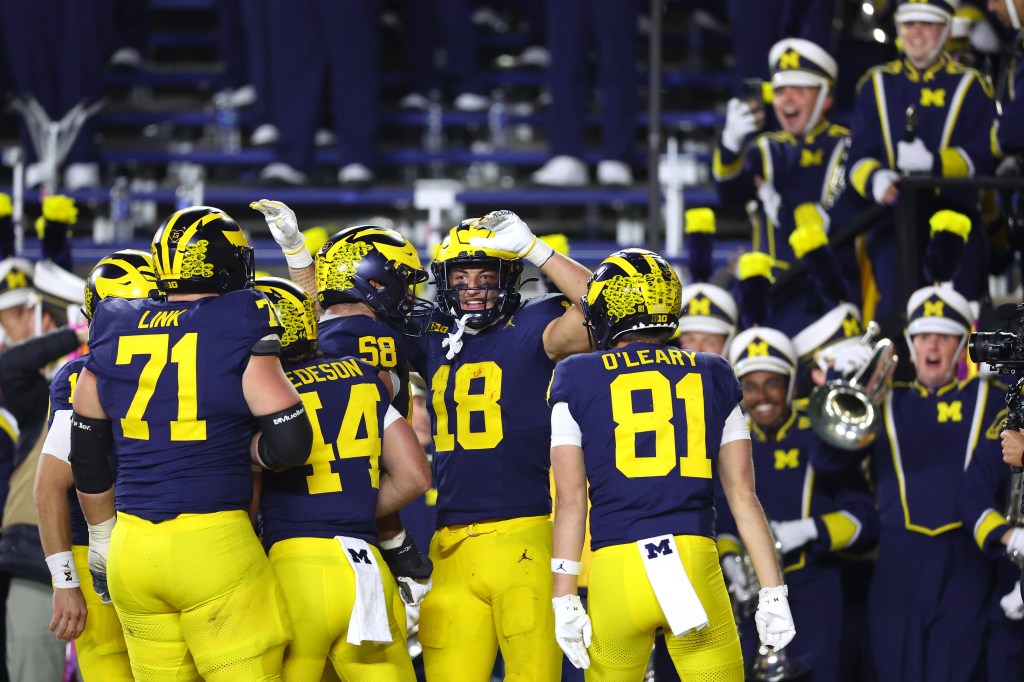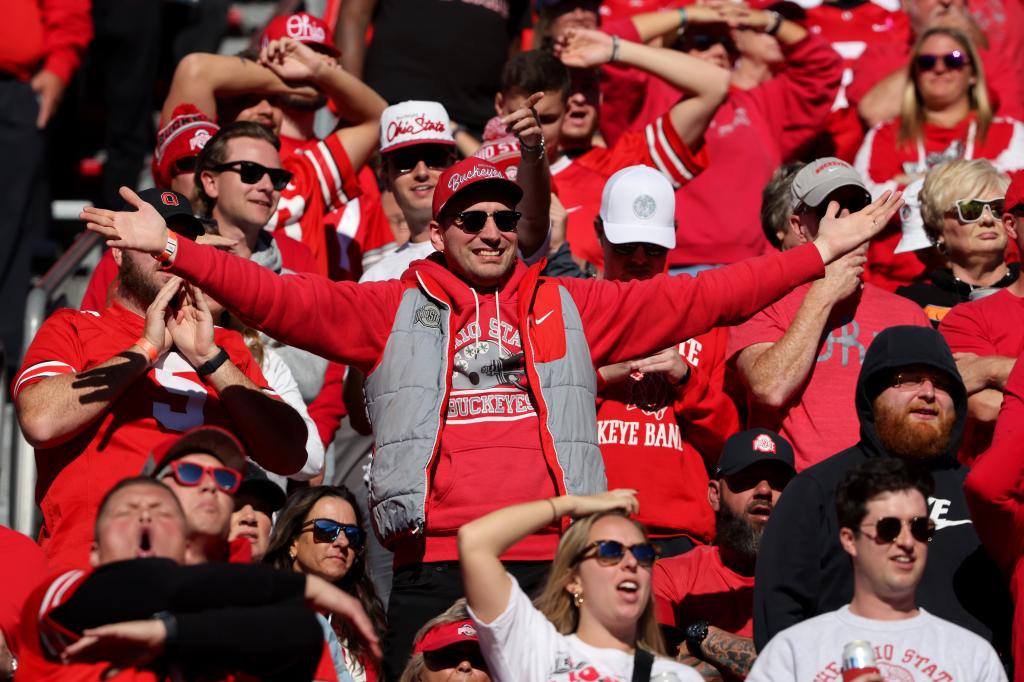Ohio State fans who are ticked off about the Buckeyes playing their huge game against Indiana next week at noon on Saturday should be most upset at their own university.
In a peculiar arrangement, both Ohio State and Michigan have stipulations in their TV deals with Fox, CBS and NBC that they cannot be assigned to play at night in the final three weeks of the regular season, sources told The Post.
The Buckeyes and Wolverines could choose to accommodate a request to play at night late in the season, but Michigan hasn’t agreed to that in the last two years.
While Ohio State made an exception last year for a home game against Michigan State that kicked off at night, former athletics director Gene Smith spoke out against the idea of late-season night games last June.
“We will not do it in the future at home. We might do it away,” Smith said. “If a colleague calls from another school and said, ‘Hey, would you be willing to play a night game at our place?’ We have to make that call. Both athletic directors have to agree on that. And so usually I would talk to Ryan (Day) and see if we’re interested in doing that and we will say yes or no. But it depends on who it is, where it is or what time our team might get back. That always plays a role into their plan. If there’s a second Saturday in November and we’re somewhere and our team doesn’t get back until 3 or 4 o’clock in the morning, that might be a problem.”
Last May, ESPN’s Pete Thamel wrote that former Big Ten commissioner Kevin Warren, who left the job to become president of the NFL’s Bears, left a number of details in the TV deal with Fox, CBS and NBC that had not been finalized.
Sources said that this scenario with Michigan and Ohio State was one of those lingering issues that held up the deal before it was finalized.
Other schools currently have limitations that are not as draconian — Penn State, Wisconsin and Michigan State are among schools that have a finite amount of late-season games that they are able to be assigned at night, sources said.
A Michigan rep confirmed to The Post that the school will not be assigned late season night games.
“We have tolerances for up to two home night games per year and no night games after daylight savings time,” the rep said. “Every school has different tolerances.”
Representatives for Fox, NBC, the Big Ten and Ohio State declined to comment.
Before Fox became a Big Ten partner, it was rare for any of the teams in the conference to ever play at night.
Then, with Fox and ESPN/ABC sharing the games, there was an informal bargaining process about prime-time games, which Ohio State and Michigan largely stayed away from.
When NBC entered the fold with a set prime-time game each week, the conference had to go to each school and see what the contingencies would be, and Ohio State and Michigan would not budge on having veto power over the night games.
It’s easy to think reflexively that universities would want to have games at night because it spreads more money around in the local community on game days and in theory is a greater home-field advantage, but coaches prefer day games due to factors including weather, having fewer hours before kickoff in which they have to account for dozens of players and staff and getting a jump start on preparation for next week’s games.
The way the Big Ten TV deal works is, Fox airs its best Big Ten or Big 12 game of the week on “Big Noon Kickoff” at noon, CBS has the Big Ten at 3:30 pm and NBC at 6:30 pm.
Before the season, the networks draft dates for which they’ll have the top pick of games — Fox always takes the Michigan-Ohio State rivalry with the first overall pick, and also has the next two top picks of dates each year — and then divvy up which games each network selects as the Saturdays draw closer.
The debate about “Big Noon” has raged for several years, and a vocal faction of Ohio State fans has griped that they finish the season with six straight noon home games — whether on Fox or Big Ten Network — which gives them less time to tailgate.
There are other fans who like the fact that they can travel home from games while it’s still light out, and sources said that older, big-money donors from Michigan and Ohio State put pressure on their schools for home games to be during the day.
From, a TV perspective, “Big Noon” ensures that the best games of the day are more spread out between windows rather than competing head-to-head later on Saturdays.
Fox is closely aligned with the Big Ten as they are partners in the conference network.
Clearly, Fox is going to do what’s in its own interest to load the “Big Noon” slate with the best games, and the strategy has been a great ratings success for the network.
College athletics is a complex series of fiefdoms, and as the biggest draws in the Big Ten, Michigan and Ohio State have leverage over their partners and in this case are especially apt to wield it.
If fans of Ohio State and Michigan want more games at night, they need to petition their own school administrators to be less obstinate about it.
Tuesday, when asked about the controversy, Ohio State head coach Ryan Day said, “Listen, I gotta deal with fan backlash for a lot of other things…” and went into coach-speak, saying he was more focused on opponents than kickoff times.
New Ohio State athletics director Ross Bjork came from Texas A&M, where the big games are usually at night, and may eventually prove to be more amenable to primetime games than his predecessor.





